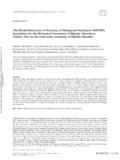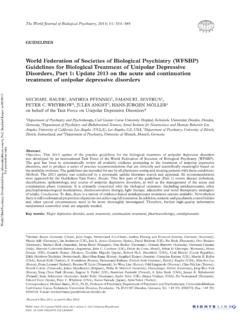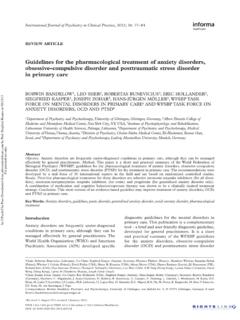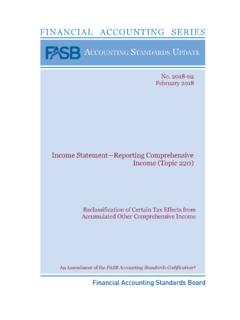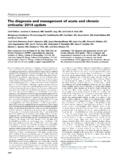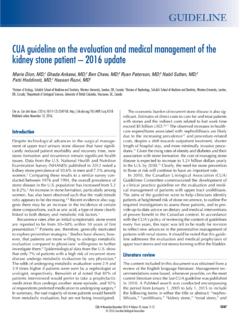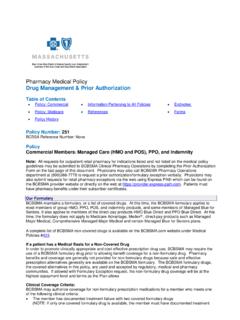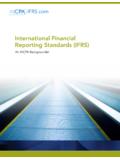Transcription of World Federation of Societies of Biological Psychiatry ...
1 GUIDELINES World Federation of Societies of Biological Psychiatry (WFSBP) Guidelines for Biological treatment of schizophrenia , Part 1: update 2012 on the acute treatment of schizophrenia and the management of treatment resistance ALKOMIET HASAN 1 , PETER FALKAI 1 , THOMAS WOBROCK 1 , JEFFREY LIEBERMAN 2 , BIRTE GLENTHOJ 3 , WAGNER F. GATTAZ 4 , FLORENCE THIBAUT 5 , HANS-J RGEN M LLER 6 & THE WFSBP TASK FORCE ON treatment GUIDELINES FOR schizophrenia 1 Department of Psychiatry and Psychotherapy, University of Goettingen, Goettingen, Germany, 2 Department of Psychiatry , College of Physicians and Surgeons, Columbia University, New York State Psychiatric Institute, Lieber Center for schizophrenia Research, New York, NY, USA, 3 Center for Neuropsychiatric schizophrenia Research & Center for Clinical Intervention and Neuropsychiatric schizophrenia Research.
2 Copenhagen University Hospital, Psychiatric Center Glostrup, Denmark, 4 Department of Psychiatry , University of Sao Paulo, Brazil, 5 University Hospital Ch. Nicolle, INSERM U 614, Rouen, France, and 6 Department of Psychiatry and Psychotherapy, Ludwig-Maximilians-University, Munich, Germany Abstract These updated guidelines are based on a fi rst edition of the World Federation of Societies of Biological Psychiatry Guide-lines for Biological treatment of schizophrenia published in 2005. For this 2012 revision, all available publications pertain-ing to the Biological treatment of schizophrenia were reviewed systematically to allow for an evidence-based update .
3 These guidelines provide evidence-based practice recommendations that are clinically and scientifi cally meaningful and these guidelines are intended to be used by all physicians diagnosing and treating people suffering from schizophrenia . Based on the fi rst version of these guidelines, a systematic review of the MEDLINE/PUBMED database and the Cochrane Library, in addition to data extraction from national treatment guidelines, has been performed for this update . The identifi ed lit-erature was evaluated with respect to the strength of evidence for its effi cacy and then categorised into six levels of evidence (A F; Bandelow et al.)
4 2008b, World J Biol Psychiatry 9:242). This fi rst part of the updated guidelines covers the general descriptions of antipsychotics and their side effects, the Biological treatment of acute schizophrenia and the management of treatment -resistant schizophrenia . Key words: schizophrenia , antipsychotics , evidence-based guidelines , treatment , acute phase treatment , treatment resistance , Biological treatment A. Carlo Altamura (Italy), Nancy Andreasen (USA), Thomas Barnes (UK), M. Emin Ceylan (Turkey), Jorge Ciprian Ollivier (Argentina), Timothy Crow (UK), Aysen Esen Danaci (Turkey), Anthony David (UK), Michael Davidson (Israel), Bill Deakin (UK), Helio Elkis (Brazil), Lars Farde (Sweden), Wolfgang Gaebel (Germany), Bernd Gallhofer (Germany), Jes Gerlach (Denmark), Steven Richard Hirsch (UK), Carlos Roberto Hojaij (Australia), Michael Hwang (USA), Hai Gwo Hwo (Taiwan), Assen Verniaminov Jablensky (Australia), Marek Jarema (Poland), John Kane (USA), Takuja Kojima (Japan), Veronica Larach (Chile), Jeffrey Lieberman (USA)
5 , Patrick McGorry (Australia), Herbert Meltzer (USA), Hans-J rgen M ller (Germany), S. Mosolov (Russia), Driss Moussaoui (Marocco), Jean-Pierre Oli (France), Antonio Pacheco Palha (Portugal), Asli Sarand l (Turkey), Mitsumoto Sato (Japan), Heinrich Sauer (Germany), Nina Schooler (USA), Bilgen Taneli (Turkey), Lars von Knorring (Sweden), Daniel Weinberger (USA), Shigeto Yamawaki (Japan).Correspondence: Alkomiet Hasan, MD, Department of Psychiatry and Psychotherapy, Georg August University Goettingen, Von-Siebold-Street 5, D-37075 G ttingen, Germany.
6 Tel: 49 551 396610. Fax: 49 551 3922798. E-mail: (Received 16 May 2012 ; accepted 18 May 2012 ) The World Journal of Biological Psychiatry , 2012; 13: 318 378 ISSN 1562-2975 print/ISSN 1814-1412 online 2012 Informa HealthcareDOI: J Biol Psychiatry Downloaded from by on 07/27/12 For personal use only. Biological treatment of schizophrenia : part one 319recommended to further strengthen the therapeutic effort. The goals and strategies of treatment vary according to the phase and severity of illness. In the acute phase of treatment (lasting weeks to months), which is defi ned by an acute psychotic episode, major goals are to develop an alliance with the patient and family, to prevent harm, control disturbed behaviour, reduce the severity of psychosis and asso-ciated symptoms ( , agitation, aggression, negative symptoms, affective symptoms), determine and address the factors that led to the occurrence of the acute episode and to affect a rapid return to the best level of functioning.
7 Special attention should be paid to the presence of suicidal ideation, intent or plan, and the presence of commanding hallucinations. The patient should be informed about the nature and management of the illness, including the benefi ts and side effects of the medication, in a form that is appropriate to his or her ability to assimilate the information. In the acute treatment phase, the main emphasis is on pharmacotherapeutic (and other somatic) interventions. Therefore, antipsychotic therapy should be initiated as a necessary part of a comprehensive package of care that addresses the individual s clinical, emotional and social needs.
8 Specifi c treatment recommendations for the acute treatment of schizophrenia and the management of treatment resistance The separation into fi rst- and second-generation antipsychotics can be considered as arbitrary and there is the need to choose the suitable drug for a certain clinical condition. However, to structure the text, especially with regard to the terms used in nearly all clinical trials, the terms FGAs and SGAs are used, but the reader should be aware that these terms represent rather a pseudo-classifi cation than a clinically and scientifi cally meaningful classifi cation.
9 First-episode schizophrenia In fi rst-episode schizophrenia , antipsychotic phar-macological treatments should be introduced with great care due to the higher risk of extrapyramidal symptoms (EPS). Appropriate strategies include gradual introduction of antipsychotic medication with the lowest possible effective dose, combined with careful explanation. The fi rst-line use of both fi rst-generation (FGA) and second generation (SGA) antipsychotic medication at the lower end of the standard dose range are possible treatments for a person experiencing a fi rst episode of schizophrenia .
10 Antipsychotics should be chosen individually, Preface In 2005, the World Federation of Societies of Biological Psychiatry (WFSBP) Guidelines for Bio-logical treatment of schizophrenia (Part 1: Acute treatment of schizophrenia ) were published. Since 2005, new randomized clinical trials (RCT), open-label trials and meta-analyses have been conducted and published, providing new evidence for the effi -cacy of Biological treatment in schizophrenia . Knowl-edge regarding the safety, tolerability and effi cacy of approved antipsychotic drugs has increased and new antipsychotic drugs have been introduced.
